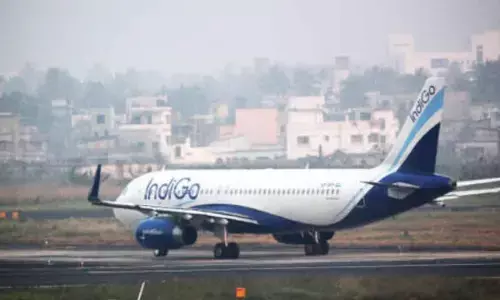Indian CROs under lens of regulators

Indian CROs under lens of regulators. The US Food and Drug Administration (FDA) and the World Health Organisation have intensified investigations into India\'s clinical research organisations (CROs), industry officials said, after recent probes revealed two leading firms had violated standards.
.jpg) The US Food and Drug Administration (FDA) and the World Health Organisation have intensified investigations into India's clinical research organisations (CROs), industry officials said, after recent probes revealed two leading firms had violated standards.
The US Food and Drug Administration (FDA) and the World Health Organisation have intensified investigations into India's clinical research organisations (CROs), industry officials said, after recent probes revealed two leading firms had violated standards.
The scrutiny is likely to further hurt India's reputation as a global pharmaceutical hub, as it follows sanctions imposed by the FDA and other regulators on Indian generic drugmakers over manufacturing quality lapses.
India's CROs conduct drug trials for global drug makers seeking to cut costs. Consultants Frost & Sullivan has forecast the sector's sales to more than double to $1 billion in 2016 from $485 million in 2012.
"In the last few months, there have been several and more frequent audits of CROs by regulators," said Apurva Shah, managing director of Veeda Clinical Research, which says on its website it provides services to the world's top 10 drug makers.
"The time, intensity and the detail of the audits has increased," he said, specifically referring to FDA audits. The FDA declined to comment. Inspectors at the WHO, which recently issued a warning to Chennai-based Quest Life Sciences over defective trials work, are also looking into lapses at other Indian CROs, a person with knowledge of the matter told Reuters.
Asked about its inspections, the WHO said it was not specifically targeting India. "These inspections are arranged based on risk management principles," it said in a statement. Quest has said the issue was isolated, and would be resolved in six months.
But the WHO warning followed a probe last year involving one of India's largest CROs, GVK Biosciences, which resulted in the withdrawal of approvals for hundreds of generic drugs in Europe. In the case of both GVK and Quest, regulators found duplication of patients' electrocardiograms (ECGs), or heart records. Regulators are now taking a lot of time inspecting ECG data at all CROs, Shah said.
D A Prasanna, head of the industry lobby group Association of Contract Research Organisations, said the probes cast a bad light on a sector already facing challenges at home.India's pharma regulator has yet to draft concrete guidelines to conduct trials three years after the Supreme Court halted 162 trials, citing unethical practices.
"If we see an unreasonable rise in the frequency of foreign inspections over small issues - like in the case of ECGs - then I think we need to be concerned as an industry," Prasanna said.
By Zeba Siddiqui & Ben Hirschler










